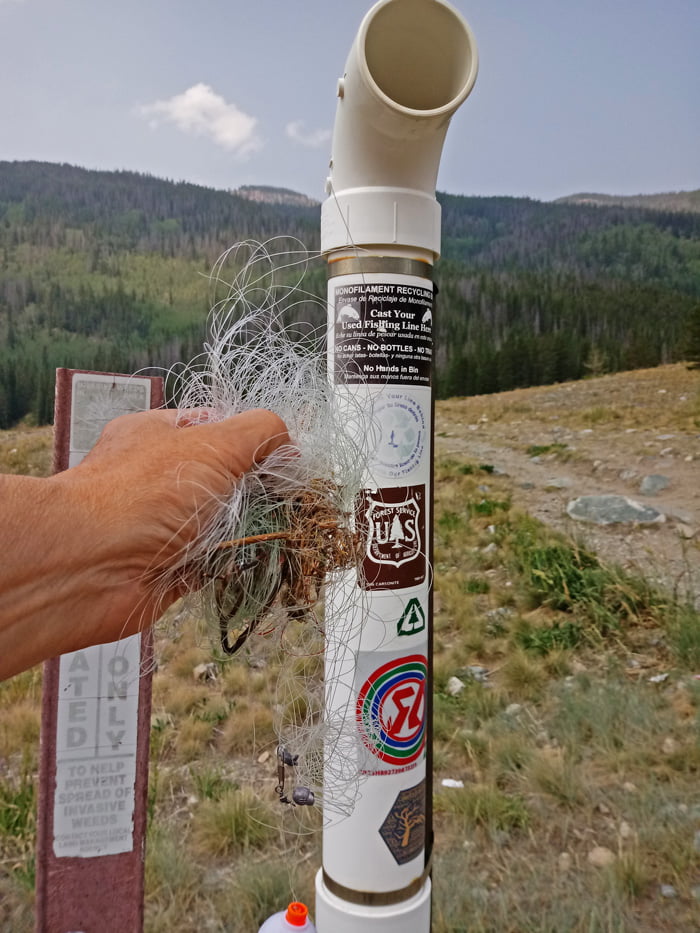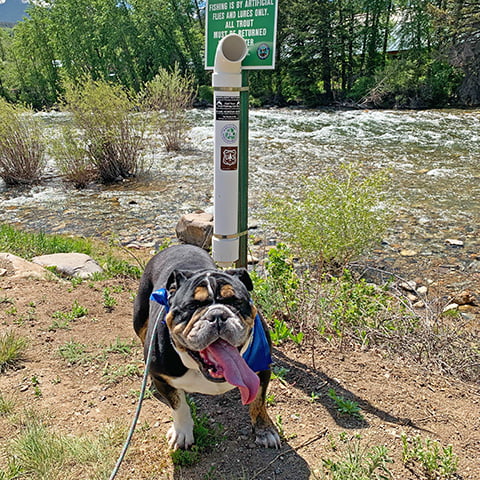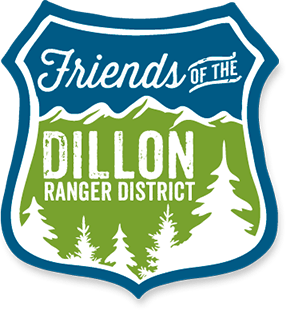How we Keep Fishing Line out of Waterways & Bird Nests
For the past three years, FDRD volunteers have been assisting the Forest Service with managing the fishing line recycling bins throughout the county. We call it the Adopt-a-Bin program. Over 30 bins constructed of PVC pipes, are located at popular fishing locations along the shores of lakes and rivers in the Dillon Ranger District. Anglers can deposit their used monofilament fishing line in the bins, rather than throw it in the trash or on the ground.
When line is disposed of improperly, it can be harmful to wildlife. The local bird population will often find and use the fishing line material in their nests. This is unsafe and unnatural for the birds. The bins also help keep the used line off the shoreline and out of the waterways and landfill.
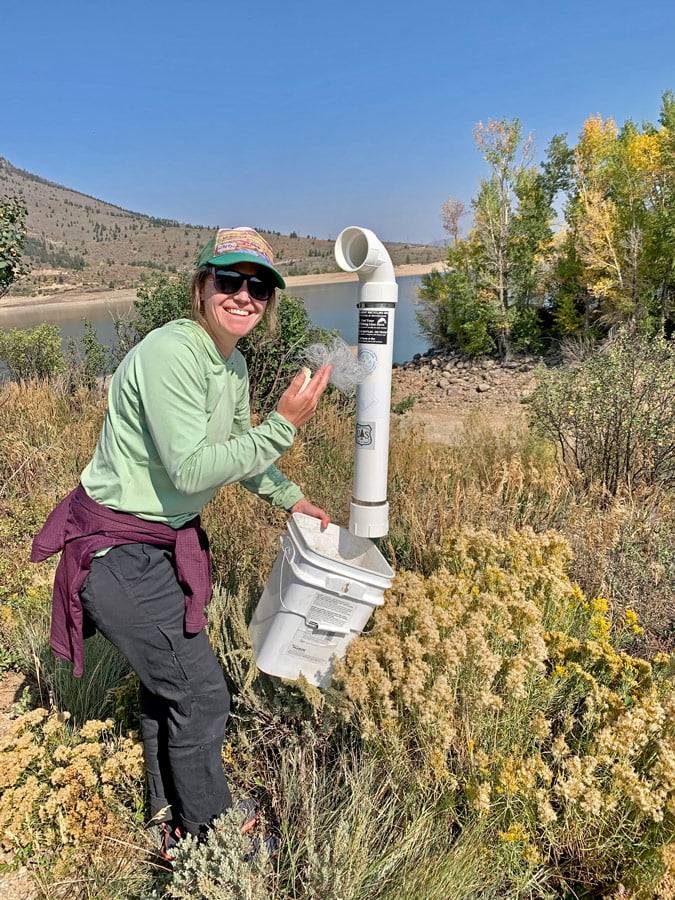
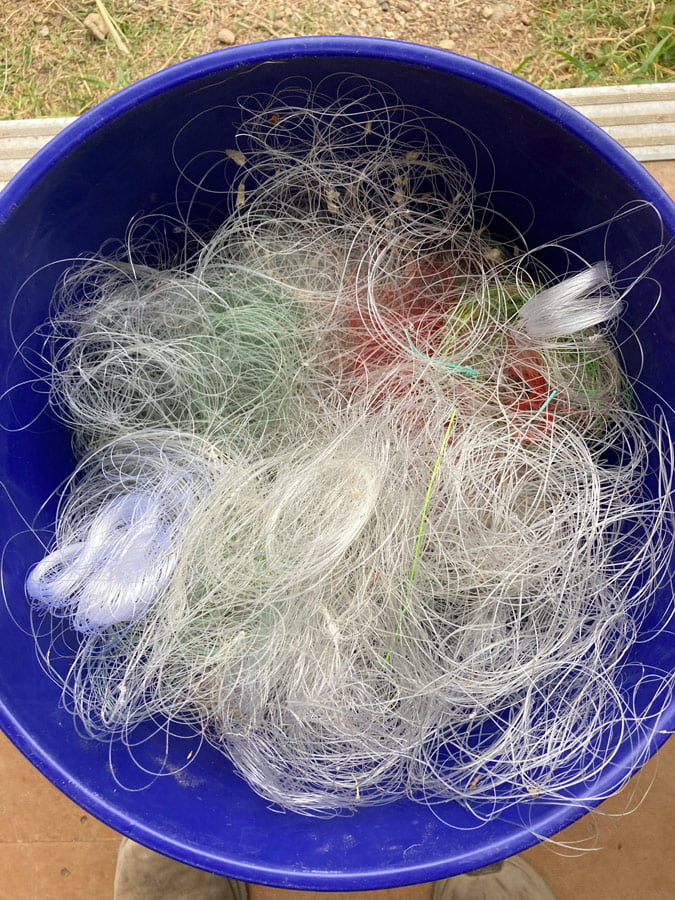
Volunteers are responsible for three to four assigned bins that they empty throughout the summer months. When volunteers empty their assigned bins, they clean out the trash, weights, hooks, and lures from the line. After the line is cleaned it is turned into FDRD. At the end of the season, FDRD collects all the cleaned fishing line and sends it in for recycling. We ship it to the Berkley Conservation Institute in Iowa, who are the leaders in monofilament fishing line recycling. They have recycled more than nine million miles worth of fishing line since the inception of their recycling program, 30 years ago.
FDRD volunteers must keep their assigned bins clean and empty, to encourage anglers to utilize them for their intended purpose. Bins are often used improperly when users deposit trash in them. When bins are used improperly it makes the job difficult and unpleasant for our volunteers. (Would you want to remove a dirty diaper from a pvc pipe?) Please do your part and refrain from depositing trash into fishing line recycling bins! We hope to continue educating the public on the recycling bins and their intended purpose, to make the job a little easier on our volunteers.
